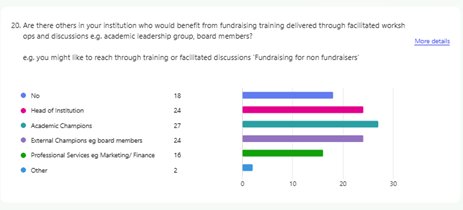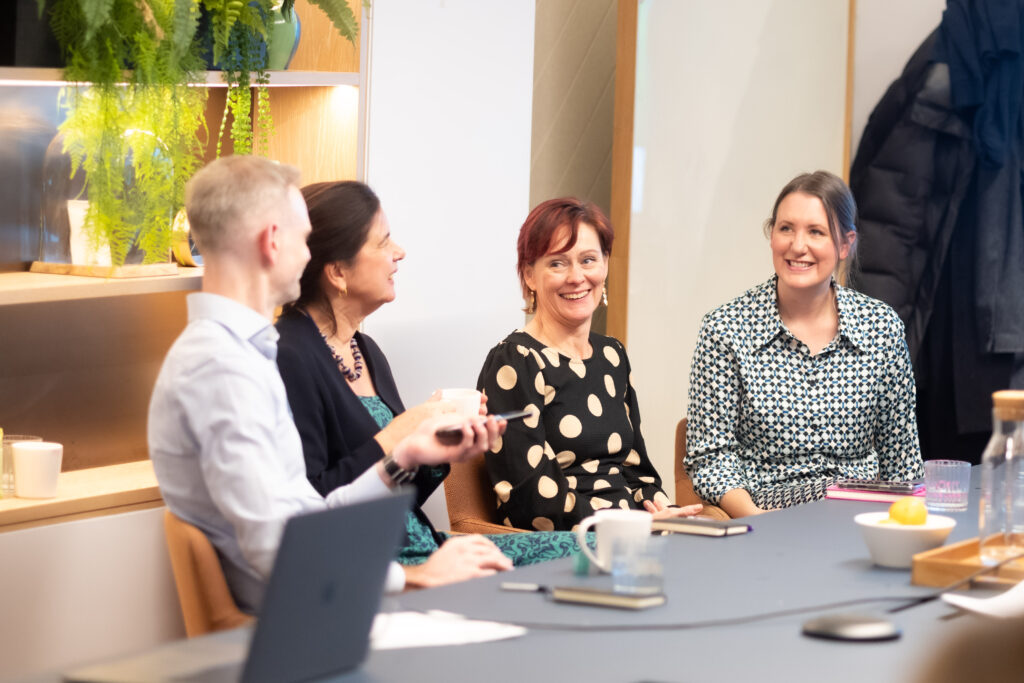Creating Meaningful Capacity Building Experiences: Insights for Professional Development
Today, in the third instalment of our four-part series, Academic and Education Director Gordon Cox looks at how there is a demand for meaningful professional development and new insights reveal what makes capacity building effective. If you missed yesterday’s article Unlocking Potential: Navigating Preferences & Challenges, you can read it here.
Quality Over Length: The Trainer Matters
While session length is not a primary concern, the expertise and delivery of the trainer significantly affected impact and engagement. Participants value speakers who are knowledgeable, inspiring, and can foster genuine learning. The ideal format blends structured skill-building with dynamic delivery to keep professionals engaged.
Top Priorities: Professional Growth Takes Centre Stage
- Professional development is the overwhelming priority, with 75% of respondents identifying it as their main need.
- Team development (53%) and individual growth (48%) highlight a balance between collaboration and personal skill-building.
- Despite this, structured training days remain rare—indicating an opportunity for managers to embed dedicated learning periods into workflows.
- Interestingly, few respondents were seeking training to transition into another sector or role, reaffirming a focus on deepening expertise rather than career shifts.
Engagement Over Passive Learning
Participants clearly prefer interactive, engaging, and practical training formats. Passive learning—such as long, non-interactive presentations—is widely disliked, with in-person sessions remaining the preferred approach.
Hands-On Training Wins Over Theory
- Respondents emphasised tangible skill-building, particularly within their current roles.
- Leadership development is valued, but practical application is paramount.
- Case studies, peer collaboration, and scenario-based learning offer strong appeal over traditional lecture-based training.
Breaking the Routine: The Value of External Capacity Building and Training and Development
- The workplace environment lacks appeal, with few respondents wanting to stay in their office for training.
- Externally facilitated sessions are seen as a more immersive and engaging way to learn.
- Networking, interactivity, and team-building elements—while ranking lower—still contribute meaningfully to positive training experiences.
A Call for Structured, Actionable Learning
The findings point to clear opportunities to enhance training programmes:
- Adaptive training design should cater to diverse learning styles and professional needs.
- Ensuring structured development initiatives allows professionals to prioritise growth despite time constraints.
- Institutions can further support training accessibility, fostering lasting professional and team-based development.
Sector-Wide Takeaways
Approximately two-thirds believe their colleagues would also benefit from training, with a particular emphasis on engaging academic champions and senior leadership in development efforts.

This research underscores a strong enthusiasm for practical, structured, and engaging training formats—providing valuable insights for designing future professional development programmes.
The final question on trustees yielded insightful results—of the 56 respondents, only 10 identified as trustees. The emphasis on learning from the wider charitable sector and giving back presents a potential opportunity for team professional development.
Encouraging colleagues to take on trustee roles enhances individual skills and strengthens institutional and sector-wide connections. This could be a win-win for community-focused educational institutions, benefiting the institution, the individual, and the team by fostering leadership, governance experience, and broader sector engagement.
The next article in the series can be found here:
Key Observations & Recommendations for Building Capacity
Board-level Training
- Fundraising at the Foundation currently
- Context and Competition: Review of Fundraising Trends
- Maximising Income: Ingredients for Fundraising Success
- Setting a Fundraising Plan
- The Role of Trustees in Fundraising
- Roundtable discussion
- Storytelling – creating and sharing a case for support and making the ask

